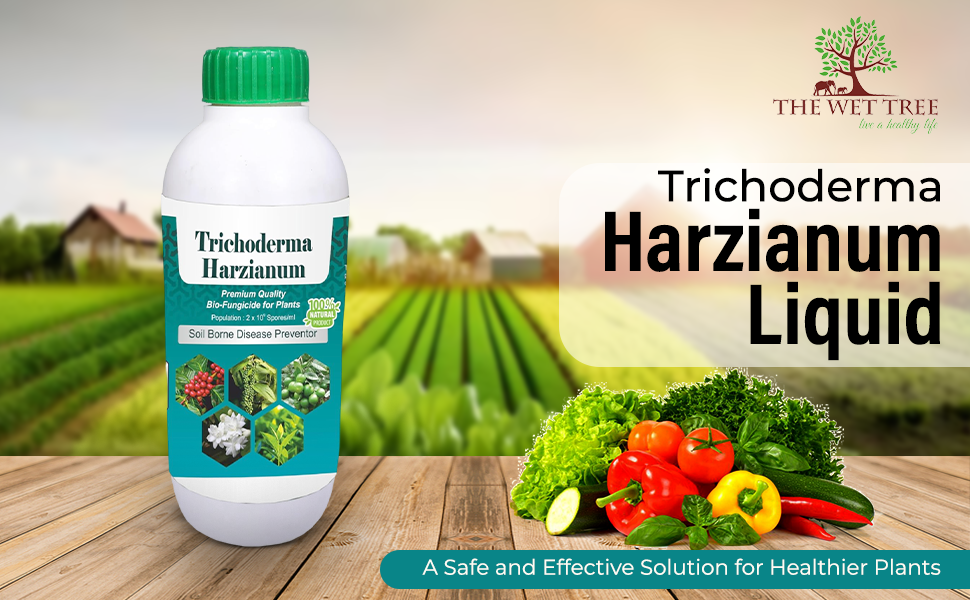Tomato growers have been on the receiving end of Fusarium wilt disease from the Fusarium oxysporum soil fungus for years now. This disease goes into the plant’s veins and strips the plant of its water supply thus causing the plants to droop and the leaves turn yellow then die. Sustainable agriculture farmers especially those in organic farming have been looking for a better way to combat this pathogen. Welcome trichoderma harzianum uses in agriculture friendly fungus known for its unique trait as a biocontrol agent against soil borne diseases. This blog focuses on the following biological miracle Trianum Shield in combating Fusarium wilt in organic farming of tomatoes.
About Trichoderma harzianum
Trichoderma harzianum is a soil born fungus which have rightly earned the tag of champion of biological control. This’s why it could be useful in organic farming as it suppresses plant pathogens such as; Fusarium oxysporum. How T. harzianum works is by challenging the space and nutrients of the unfavorable fungi; it infects their cells and brings to the plant defense reactions. In contrast to chemical pesticides, the antagonists give long-time protection in comparison to T. harzianum which also improves the quality of the soil and is Eco-friendly.
Trianum Shield and Its Place in Fusarium Wilt Protection
Trianum Shield is a fungicides for fusarium wilt that has Trichoderma harzianum as the active component of the product. This product was developed for sustainable agriculture because this product is not a chemical control but it improves the plant’s immunity by forming a protective barrier of fungi around the part of the plant that is most vulnerable: the roots – against disease causing organisms such as Fusarium oxysporum. Its mode of action is twofold: it is antagonistic with the pathogenic fungus and is a parasitic effect; it also enhances the roots and improves nutrient acquisition. The result? Tomato plants become more tolerant of Fusarium wilt, including in fields that have been infested with this pathogen in the past.
How Trianum Shield Works
- Competition and Colonization: T. harzianum actively grows in the root area and forms a screen which prohibits pathogenic invasion. By consuming the available resources and space it deprives the disease causing fungi of resources.
- Mycoparasitism: They stated that this process involves T. harzianum thrusting upon the pathogenic fungus in which the latter is sensitive to. A beneficial fungus wraps itself around the pathogen’s hyphae and secretes enzymes which dissolve the pathogen’s cell walls thus killing it.
- Induced Resistance: In addition to its direct action against underlying pathogens, T. harzianum first strengthens the immune system of a tomato plant. By doing so IE triggers a systemic resistance mechanism which renders plants much more able to resist a whole host of pathogens headed by Fusarium.
The Organic Advantage
Another significant sell point of Trianum Shield for Fusarium wilt control is therefore its compliance with organic farming practices. Due to the fact that the use of synthetic fungicides is not allowed in organic farming systems, organic farmers have remarkable difficulties in the management of soil born diseases. But there is Trichoderma harzianum, which should be used instead of the chemical, as it’s effective and doesn’t harm the environment. Because healthy and strong root structures are created through the improvement of soil structures via the enhancement of tillage features, crop vulnerability to diseases is minimized and productivity improved.
Moreover, Trianum Shield is biodegradable which means that it is harmless to the environment and nontarget organisms, favorable insects and microorganisms. It enables farmers to escape the chemical rotation, which sometimes results in a creation of a pool of pathogen resistance to the fungicides applied.
Real-World Applications
Organic tomato growers will be able to witness the possitive effect of Trianum Shield in their fields. A farmer practicing crop production in southern California recently experienced recurrent Fusarium wilt disease and applied the biofungicide for improvement of his soil health. From one growing season to another, he was capable of perceiving the decrease in disease occurrence, enhanced plant vigor and quantity yield produced. The incorporation of Trichoderma harzianum in his organic farming system enabled him to cultivate tomatoes again without toxic chemicals, maintain the certifiably of the soil and sell tomatoes that would meet the market’s rising demand for organic foods.
How to Apply Trianum Shield
Trianum Shield is most often used as a soil drench or a seed treatment. When applied as a soil drench the product guarantees establishment of the beneficial fungus in the root area, thus forming a barrier right from the beginning of the growing season. In seed treatment it can be effective in enhancing the ability of seedling to fight for its own by enhancing its ability to combat soil borne diseases as soon as it becomes affected, especially in the developmental phase of the seedling.
Conclusion
For instance, organic tomato farmers have always been faced with the Fusarium wilt challenge. At the same time, there is a safe and environmentally friendly product with the name – Trianum Shield. Using the force of Trichoderma harzianum, farmers are able to guard their crops, enrich the ground, and stay organic without losing their crop yield and quality. This paper is proof that as biological solutions progress further, commodities including Trianum Shield are the best bet in disease control in sustainable farming. To know more about fusarium wilt tomato treatment, visit Novobac.
